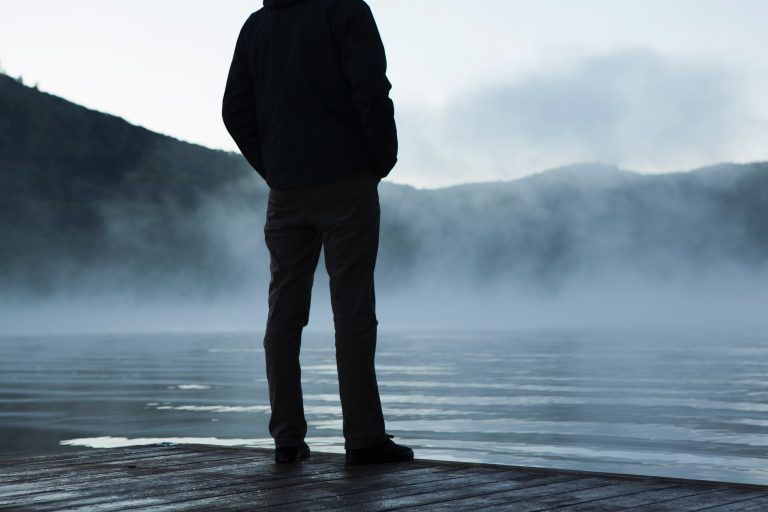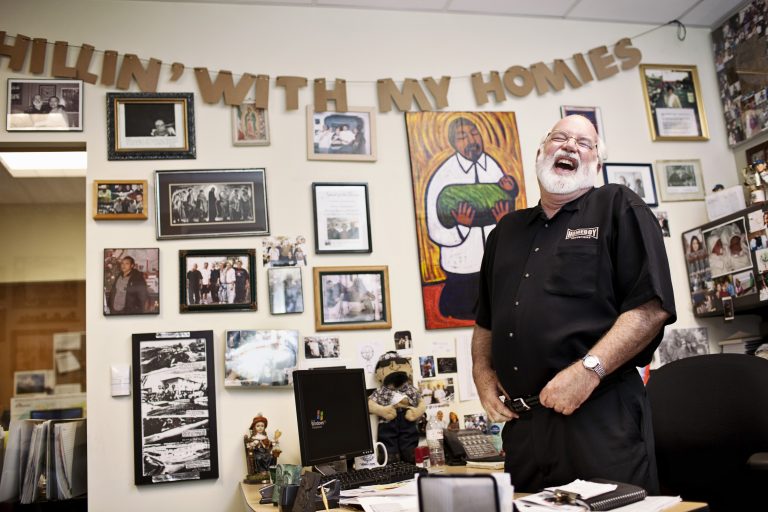
Image by Todd Quackenbush/Unsplash, Public Domain Dedication (CC0).
Death Without Duality: Three Both/Ands at the End of Life
Dying, like living, is not an either/or affair. It’s a both/and. Which is part of what makes it all so maddening for the floundering human who craves the comfort of dualities, of right and wrong, of fail-proof instructions.
I was reminded of this by some of the masters this month when I had the honor of hosting the End Well symposium in San Francisco. Twenty-eight speakers took the stage and talked about their experiences of almost dying, or treating the dying, or mourning someone who has died, or caring for the caregivers, or trying to shape policy or redesign systems or teach people about dying and/or do some of these simultaneously. There was some anger, and no small amount of sadness of course, but also a surprising amount of laughter. It turns out that we are funny right to the end.
Here are three both/and axioms that I heard echoed most often from people with a hugely wide range of professional backgrounds:
1) Reckoning with one’s life at the time of death is both the simplest thing in the world and the most complex.
Buddhist teacher and co-founder of the Zen Hospice Project, Frank Ostaseski, put it beautifully:
“At the end of life, it gets really simple: Am I loved? Did I love well?”
He’s right. Those questions are incredibly simple. As are the “four things” one can say — “Please forgive me,” “I forgive you,” “Thank you,” and “I love you” — at the time of death, popularized by Ira Byock. One of the huge, unique gifts of facing the end of life — whether your own or someone you love — is that the urgency for healing is undeniable.
But the dynamics that spark and rot and flow and flutter underneath those questions are anything but simple. They are as complex as human relationships as a whole, which is to say very fucking complex. The answer to the question of whether I am loved may seem obvious to an outsider, but if I’ve never felt loved in the right way by the one person I needed it most from, I may not be capable of a “yes.” Even at the time of death, especially at the time of death, we are not logical creatures.
And to answer whether we have loved well is perhaps an even more charged and challenged task. We carry our regrets and sense of relational inadequacy around for decades and then, in the end, are asked to lay them down and surrender to our own imperfection. A tall order. The tallest perhaps. Dr. B.J. Miller, former executive director of the Zen Hospice Project and a clinician, teaches:
“If there is any enemy at the end of life it is shame.”
If we can’t shed our shame, it makes it hard to go. The power in the dying process, from what I gather from these wise souls, is acknowledging the complexity underneath or behind the simplicity and still managing to grace one another with the forgiveness and recognition that we all so desperately crave. It is the kind of emotional courage that transcends death.
2) Our job, when caring for the dying, is to ease suffering, but also recognize that it is a source of meaning for many people.
B.J. also said, “I wouldn’t wish a lack of suffering on my worst enemy. There’s no way to learn.”
He knows a bit about it, having had three limbs amputated and survived near-lethal burns on much of his body after an accident in college. His own time in hell was incredible preparation for a lifetime of treating patients and talking with people about facing death.
Some of us have an inclination to romanticize death. It’s the peak of drama, no doubt — the final scene. But of course it is not all buzzer beater catharsis and mystical visitations. It is sometimes choking and seizing and terrible, ugly, unbearable pain. In a word, suffering.
Now the role of palliative care, but all health care really, is to ease suffering. This is true and important and so often lost in our current system, which too often feeds the wrong motivations in otherwise decent and smart humans. We have to redesign the system so that easing suffering is the heart of everything we do, or as designer Ivor Williams puts it, “Death involves everyone. Design accordingly.”
And yet, B.J. Miller would not be B.J. Miller without his suffering. None of would be any of us without our suffering. It is what erodes our delusions and softens our hubris and strengthens our capacity to resist duality and blame. It is the fires in which we are all forged.
So that, too, we must remember. Which doesn’t mean easing off on pain meds, but it does mean witnessing suffering as a sacred and necessary part of being human, even as we try to work with its ferocity and sit with the one being visited at this particular moment. Or as Dr. Lucy Kalanithi, a clinician, beautiful speaker, and widow to Paul Kalanithi, author of When Breath Becomes Air, put it:
“A gift we get to have in medicine is to be witnesses. It’s a front row seat to the human condition.”
3) When you die, you are the most alone you will ever be, and yet you cannot do it well without the gift of others.
Think about it: There is no journey more solitary, by definition, than that of dying — unless you Thelma-and-Louise it. Just as you have lived in your body alone all your life — experienced its holy and wholly specific alchemy of aches and pains and pleasures — you and only you leave that body at some unpredictable moment. (As I write this, I’m reminded how otherworldly pregnancy is, a moment when women actually do, in a sense, share their solitary experience for 10 strange months.)
In any case, accepting the solitude of it is probably key to surrendering to it. You have to go it alone, at least from a purely physical sense.
And yet, to die well is to die together. Or at least surrounded by people who care for you in your time of exquisite vulnerability. Hopefully these are people who have known you at your most robust, people that you have cared for, people you have eaten and drunk too much with and laughed beside and tickled and fought with and repaired again. Hopefully these are people who know your wishes and will fight like momma bears to see them through.
In one study, 66 percent of people said that the thing they feared most at the moment of death was pain. Understandable. And not particularly surprising. Do you know what topped that fear? The fear that they would be a burden to their family members — logistically, psychologically, financially.
Dr. Aditi Mallick says, “The things that scare us the most about death are at the core of what it means to be human.” Indeed, we fear being dependent on others, being inconvenient and messy and powerless, our whole lives long. And when we die, this fear becomes epic. Our power lies in making peace with it. If we live like we will one day die, then we can’t help but create relationships that are loving and strong and imperfect and they can weather even this, the final test of the human condition.
As B.J. puts it, “The end of life is a call to learn how to be loved. The hardest thing of all.”
If you are interested in being part of the End Well Symposium next year, it is scheduled to take place on December 6, 2018 in San Francisco, California. Register here.

